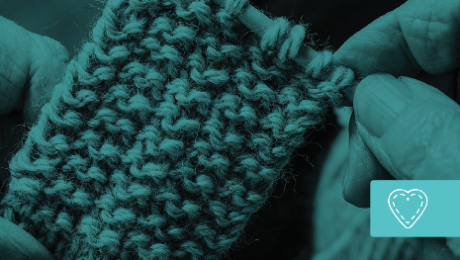HELPING SENIORS CREATE AN EMERGENCY CONTACT PLAN
- Published in ALZHEIMER, CAREGIVERS, DEMENTIA, IN HOME CARE
WHAT SENIORS NEED TO KNOW ABOUT OSTEOPOROSIS
How Osteoporosis Affects Seniors
It’s likely that more than 200 million people are living with osteoporosis—especially common among older women. Learn how to prevent or manage it this National Osteoporosis Month.
It’s likely that more than 200 million people are living with osteoporosis, a medical condition marked by having fragile bones. This condition is especially common among older women, and it can be dangerous. (NCBI)
May is National Osteoporosis Month. Since seniors are at greater risk of this disease, it’s important to learn how to prevent or manage osteoporosis.
The Basic Facts of Osteoporosis
What Is Osteoporosis?

Everybody relies on their bones for strength, support, and more. Osteoporosis is a disease that weakens bones. As a result, bones are fragile and susceptible to risks like breaks and fractures. When combined with conditions like arthritis, osteoporosis can make tasks like moving around risky and painful.
Potential Outcomes of Osteoporosis:
- Breaks and fractures
- Complications resulting from breaks & fractures
- Poor posture
- Limited mobility
What Causes It?
For many people, osteoporosis is a side effect of aging. However, it can be exacerbated and accelerated by conditions like rheumatoid arthritis, stroke, and some cancers. Certain medications and negative habits, like poor nutrition, can also contribute.
Diagnosing Osteoporosis
Osteoporosis is diagnosed through a bone mineral density (BMD) test. Other exams and laboratory tests are sometimes administered as well. (National Osteoporosis Foundation)
![]()
WHAT SENIORS NEED TO KNOW ABOUT OSTEOPOROSIS
Osteoporosis Awareness Month
Home Care Tip
Since seniors are at greater risk of osteoporosis and falling, it’s important for you to learn how to avoid falls, including arranging a home safely and knowing how to get up and down safely. (National Osteoporosis Foundation)
Symptoms of Osteoporosis
If you are experiencing any of the following signs of bone loss, it is essential you be screened for osteoporosis and other bone-related diseases:
- Loss of height
- Aches without injury
- Poor posture
- Oral bone loss conditions
- Regular fractures
(WebMD)
Risk Factors
- Being a woman
- Getting older
- Being of Caucasian or Asian descent
- Family history
- Small body frame
- Unhealthy diet
- Lack of exercise
(Mayo Clinic)
Preventing and Managing Osteoporosis
Prevention Tips
Preventing osteoporosis protects seniors from bone-related problems. Consider incorporating the following:
- Calcium
- Vitamin D
- Regular exercise
- A balanced diet
Managing Osteoporosis
- Learn to prevent falls and what to do in case of a fall
- See a doctor for regular monitoring of disease progression
- Eat a bone-healthy diet and follow an exercise regimen
- Take medication to treat osteoporosis
(American Family Physician)
References:
- Published in ALZHEIMER, CAREGIVERS, DEMENTIA, IN HOME CARE
UNDERSTAND CHOLESTEROL AND ITS EFFECTS ON IN HOME SENIORS CARE
Helping Seniors Maintain Healthy Cholesterol Levels
Cholesterol levels can be a source of stress for seniors. Here’s what seniors and their loved ones need to know.

Image extracted from 0319-Cholesterol-CMYK.pdf: 0319-Cholesterol-CMYK-page1-header.jpg
About 37 percent of U.S. adults have a higher than recommended LDL cholesterol level. Since this can increase risk of heart disease or stroke — and since seniors are already at higher risk of such health problems — it’s important for aging individuals to understand cholesterol. (Source: CDC)
What Cholesterol Is All About
Although many people think of cholesterol as something negative to avoid, cholesterol is actually a natural substance the body makes on its own. It helps cells make hormones, digest food, and more. Besides the cholesterol your body makes, you can also consume cholesterol in eggs, meat, and other foods.
There are three types of cholesterol doctors measure:
- High Density Lipoprotein (HDL)
- Low Density Lipoprotein (LDL)
- Triglycerides
HDL is considered “good” cholesterol because its function is to clear out LDL (“bad”) cholesterol, which can build up plaque in the arteries. Triglycerides can also accumulate and affect the heart. When doctors give patients their “cholesterol level,” higher HDL numbers are good news; higher LDL and/or triglyceride numbers are commonly referred to as “high cholesterol” and increase the risk of heart disease. (Source: MedlinePlus)
![]()
![]()
C A R E G I V E R S
Maintaining Healthy Cholesterol Levels
How to Manage Cholesterol Levels
Seniors tend to be at an elevated risk of heart disease simply because of the aging process. When a senior also has high cholesterol, their heart disease risk increases. It is important for seniors to manage their cholesterol levels in order to keep arteries clear and functional.
Here’s how cholesterol can be managed:
- Medication: There are a few medications that help lower bad cholesterol levels and increase HDL. The most common medications are called statins.
- Dietary Changes: Since cholesterol levels can be affected by what you eat, seniors with high LDL or triglycerides should:
- Avoid unhealthy fats
- Eat healthier fats
- Get plenty of fiber
- Reduce sugar intake
- Reach a healthy weight
- Exercise Regularly: The body can manage conditions like high cholesterol better if you are physically active. Exercise stimulates many important natural processes, and simply taking walks is a great start.
(Source: WebMD)
Risks Associated with Poor Cholesterol Levels
The consequences of having too much LDL cholesterol include:
- Clogged arteries
- Increased risk of heart disease
- Higher risk of stroke
- Reduced function of the cardiovascular system
(Source: MedicineNet)
Other Heart Disease Risk Factors
Besides high cholesterol, other risk factors for heart disease among seniors include:
- Race/ethnicity
- Smoking
- Conditions like diabetes or obesity
- Lack of physical activity
- Genetics
- High blood pressure
(Source: WebMD)
Home Care Tip
Seniors can often have high cholesterol without showing any symptoms. Encourage seniors to visit doctors regularly and receive recommended blood tests to check cholesterol levels, especially if they are at elevated risk due to obesity or a poor diet.
References:
- http://www.clearcareonline.com
- https://www.cdc.gov/cholesterol/facts.htm
- https://medlineplus.gov/cholesterol.html
- https://www.webmd.com/cholesterol-management/guide/steps-to-reduce-cholesterol
- https://www.medicinenet.com/cholesterol_management/article.htm
- https://www.webmd.com/heart-disease/risk-factors-heart-disease

- Published in ALZHEIMER, CAREGIVERS, DEMENTIA, IN HOME CARE
ALLERGIES AND SENIOR CARE
- Published in CAREGIVERS, DEMENTIA, IN HOME CARE
FINDING THE RIGHT MOBILITY AIDS FOR SENIORS
Mobility Aids for Seniors
Many seniors experience difficulty getting around independently. Mobility aids can offer stability and support. If a senior is unstable performing motions like sitting down or walking, it is essential to find mobility aids that fit their needs and ensure their safety.
Approximately 1/3 of older people living at home fall at least once a year. It’s common for seniors to need mobility aids for safety and support. (Source: MerckManuals)
Common Mobility Aids for Getting Around
For seniors living at home and maintaining a high level of independence, common mobility aids are designed to help them get around. Options include:

Canes
Designed to increase stability and compensate for minimal balance issues.

Walkers
Help support those with significant stability problems but moderate upper body strength.

Rollators
Designed for those with severe stability issues who lack upper body strength and balance.

Power Scooters
Support those who cannot walk long distances but have upper body control and stamina.

Wheelchairs
Offer mobility to those unable to walk safely on their own. Variations of steering ability available.
(Source: Aging Care)
FINDING THE RIGHT MOBILITY AIDS FOR SENIORS
C A R E G I V E R S
Possible Results of Senior Falls
Sometimes mobility issues are just inconvenient for seniors. Other times they put seniors at risk of falling. Falls can be very dangerous for the aging. Falling can result in:
- Bruises
- Fractures
- Breaks
- Need for physical therapy
- Surgical correction
- Hospitalization
- Death
(Source: MerckManuals)
Home Care Tip:
Style matters. If seniors seem unwilling to accept mobility aids, consider options that look sleek or fit their sense of style. Sometimes a device that feels personalized makes a difference for seniors struggling to accept necessary changes.
Mobility Problem Risk Factors
A number of issues can increase seniors’ risk of struggling with mobility and balance, including:
- Diminished eyesight
- Diabetes or heart disease
- Thyroid problems
- Nerve issues
- Medications
- Dizziness
- Muscle weakness
- Gait changes
- Postural hypotension
- Foot pain, deformities, or poorly-fitting footwear
- Confusion or memory problems
- Environmental factors like lack of lighting
(Source: NIA)
Paying for Mobility Aids
Insurance companies, as well as some grant or senior care nonprofits, may help cover the costs of mobility aids. Ask a doctor or local agency for the aging for ideas on where to start seeking financial assistance for mobility devices.
(Source: DailyCaring)
Mobility Aids for a Safer Home Environment
Some mobility aids aren’t designed to support long-range motion. Instead, they make the home environment safer and increase independence with specific tasks. Consider installing:
- Rails along stairs, near bathroom fixtures, in hallways, etc.
- Tub/bath transfer seats or benches
- Supportive seat cushions
- Grab handles for getting in/out of a car, bed, couch, or chair
- Rolling over-bed or over-couch tables
- Additional lighting or voice command lighting to improve visibility
- Non-slip flooring that is securely tacked down
- Stairlift
- Ramps to replace stairs
(Source: ScripHessCo)
© 2023 Mobility Aids Guide
- Published in ALZHEIMER, CAREGIVERS, DEMENTIA, IN HOME CARE
FUN CRAFTS TO DO WITH THE ELDERLY DURING HOLIDAYS
- Published in ALZHEIMER, CAREGIVERS, DEMENTIA, IN HOME CARE







